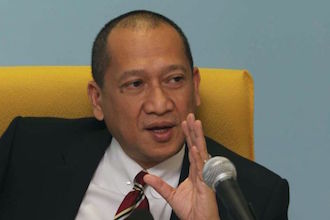No, Nazri isn’t declaring war on the royalty
The royal institution actually lost its role in the lawmaking process more than two decades ago.
Scott Ng, Free Malaysia Today
The recent gazetting of the National Security Council (NSC) Act without the express consent of the the Yang di-Pertuan Agong has brought into sharp focus the question of whether Prime Minister Najib Razak is giving himself absolute powers. One must remember last February’s statement from the Council of Rulers that expressed the view that certain provisions of the NSC bill must be refined before it becomes law. That view has apparenty been ignored.
Are the powers of the Malay Rulers being eroded further?
During the constitutional crisis of 1993, Parliament stripped the royals of their immunity from legal prosecution and also voted to take away their power to veto laws. The rulers, who intially refused to accept the amendments to their powers, eventually acceded to a proposal that they be given the right to delay giving their assent to any law passed by Parliament for 60 days. A bill would then automatically become an act even if the Yang di-Pertuan Agong were to withhold his approval.
In 1994, another amendment was passed that cut that 60 days down to 30.
Since then, the Malay Rulers have existed in a state of flux. Without any power to veto laws, they have no role at all in the lawmaking process of this country. Their function is nothing more than ceremonial.
So it comes off as rather dishonest to accuse Tourism and Culture Minister Nazri Aziz of declaring war on the royal families when he said the gazetting of the NSC Act without royal consent was in no way a sign of disrespect towards them. He was merely observing the way the law works.
Those who lament the powerlessness of the rulers generally do so because they would like the royal institution to act as a check-and-balance mechanism. But here we present ourselves with a conundrum. There’s no guarantee that the royal institution would be obejctive. After all, the rulers are not elected officials who can be made accountable to the public. At the same time, it is clear that the executive arm of our government needs to be more accountable.


